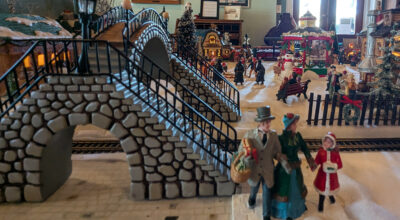Be careful with fireworks during dry conditions
Published 3:17 pm Monday, July 1, 2019
N.C. Forest Service
Elevated wildfire risks due to dry conditions are prompting N.C. Forest Service officials to urge extreme caution with fireworks and to celebrate safely this Independence Day.
“There were 35 wildfires sparked by fireworks in North Carolina in 2018 despite it being a very wet year,” said Agriculture Commissioner Steve Troxler. “To reduce the risk of starting wildfires from fireworks during the upcoming holiday, we recommend enjoying professional fireworks shows rather than setting off personal fireworks if possible.”
Even small fireworks such as sparklers, fountains, glow worms, smoke devices, trick noisemakers and other Class C fireworks can be hazardous. For example, sparklers burn at temperatures above 1,800 degrees Fahrenheit. Glow worms burn directly on the ground near ignition sources. Wildfires caused by fireworks can be prosecuted under the forest protection laws of North Carolina and individuals may be subject to reimbursing the costs for fire suppression.
If you choose to display your own fireworks, here are some safety tips to follow:
- Don’t use fireworks such as ground spinners, firecrackers, round spinners, Roman candles, bottle rockets and mortars, which are illegal in North Carolina.
- Do not use fireworks near dry vegetation or any combustible material.
- Don’t aim fireworks at trees, bushes or hedges where dry leaves may ignite.
- Make sure fireworks are always used with adult supervision.
- Follow instructions provided with fireworks.
- Do not use fireworks while under the influence of alcohol.
- Have a rake or shovel and a water source nearby.
- Ensure all burning material is completely extinguished afterwards and monitor the area for several hours.
“As the population in North Carolina continues to increase and more homes are built in wooded areas, it’s important for everyone to understand wildfire prevention,” said State Forester David Lane. “In addition to using fireworks safely, campfires or grills should never be left unattended.”
Campfire and grill ashes should be doused with water and stirred. Repeat this process to ensure ashes are cold. Place ashes in outside metal containers or bury them in mineral soil. Never put ashes in a paper bag, plastic bucket or other flammable container. Never store ashes in a garage, on a deck or in a wooded area. Double-check that ashes and coals are completely cold by feeling with the back of a bare hand before throwing them away to make sure a fire won’t start.
For more information, contact your local N.C. Forest Service office or visit www.ncforestservice.gov.





